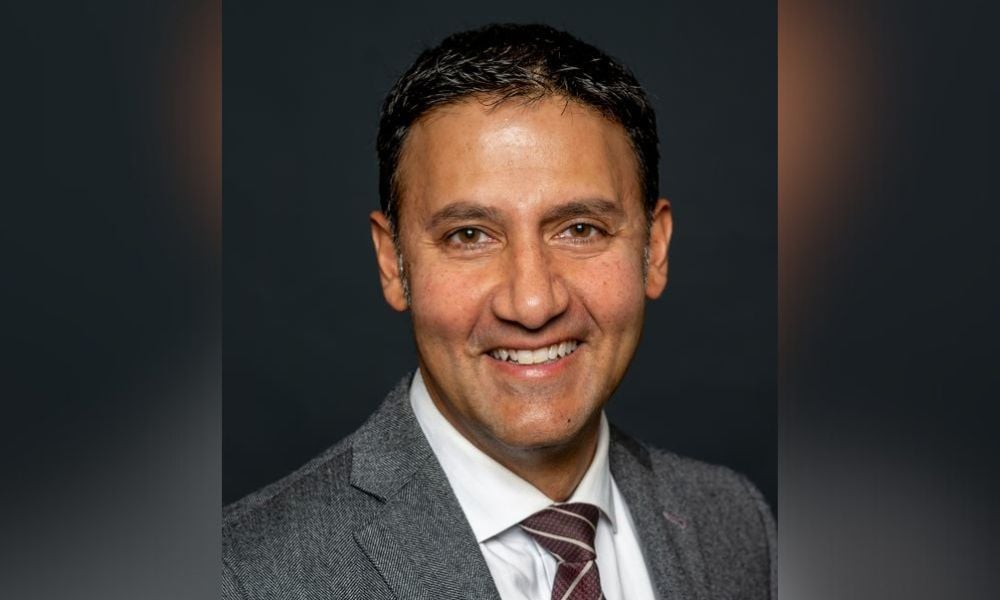I recently read a thoughtful open letter to general counsel and law firms written by Daniel Desjardins, general counsel of Bombardier Inc. Stated simply, this letter offers sound advice.
It begins by emphasizing the commonality of interest and shared challenges between GCs and law firm leadership. It notes the changes in the profession, that we will not return to the pre-recession status quo, and that many law firms have responded to the market demand “for lower-cost services, more predictability and improved efficiency.” The letter cites positive steps taken to achieve these goals including project management, legal process outsourcing, and realigning firms to better meet client needs.
But, and this is an important but, the letter also asserts the changes made to date simply will not be enough to meet the significant challenges that lie ahead. To succeed in today’s business environment law firms must change their governance and development model.
The letter urges GCs to support and encourage the transformation of their law firms by adopting some of the basic tools used by successful businesses including strong unified leadership, rigorous analysis, and sophisticated strategic planning.
Law firms must adapt their service delivery to the reality of their clients. In-house departments have transformed themselves over the past 20 years changing both how companies procure legal services and the nature of services being provided. Bombardier has developed specialized expertise necessary to support the selling of trains and planes around the world and no law firm can match its “law department’s expertise and experience selling trains and planes.”
Bombardier is not alone as other law departments have developed specialized expertise to serve the core needs of their organizations.
This has led to a dramatic shift in the legal work being outsourced. Most work now falls on one end of the spectrum or the other: low-value commodity work or high-value strategic work requiring special expertise or the support of key partners. Consequently, many law firms now provide legal services on a transactional basis and increasingly procured through RFPs.
Additionally, as companies expand globally they adjust where they spend their money on legal services. Law firms then face the challenge of whether they should expand to follow their clients.
These changes give rise to a growing (and legitimate) tension between law firms and their corporate clients. Many departments increasingly rely on their law firms on a transactional basis. At the same time, these same departments would like to develop long-term relationships with their law firms.
Law firms face two significant challenges: 1. when and if to respond to the increasing number of client RFPs; and 2. the allocation of resources between solidifying the relationship with existing clients and finding new ones.
The letter asks GCs a series of questions:
How can I, as a GC, expect my law firm to build its infrastructure, invest in internal talent, and devote time to the learning curve of my corporation’s needs? All this, while at the same time delivering low-cost services more efficiently? How do you square that with the investment and time that’s going to be required from a law firm?
The letter suggests law firms’ best allies are their existing clients that provide a “massive brain trust” — including GCs, CEOs, and CFOs of large, sophisticated companies as well as their smaller, entrepreneurial clients. It also gently suggests law firms could benefit from the business experience of their clients by discussing their vision and strategy with trusted GCs and other senior executives.
Law firms learn from their clients mostly through ad hoc efforts by individual partners rather than a rigorous and steady approach. The letter encourages the firms to be more systematic and structured in drawing from the experience of their clients by establishing an advisory board to meet with the firm leadership team once or twice a year.
Daniel analogizes this to how corporations, pension funds, and others seek outside feedback. Ideas that could be discussed by such an advisory board include, talent management, strategies for growth,. and developing new practice groups. Looking outward occasionally would be invaluable in helping to formulate the law firm’s vision and strategy since most firms tend to look inward when managing change.
Several things struck me about this letter. First, it avoids the law firm bashing so prevalent today. Second, it acknowledged many law firms have made significant efforts to change. Third, it recognizes law firms and law departments have shared interests in delivering quality legal services. Fourth, it is a serious effort to expand the dialogue about change. Finally, it suggests both GCs and law firms must move beyond their comfort zone to achieve change since we are in this together.
I encourage you to read it.
It begins by emphasizing the commonality of interest and shared challenges between GCs and law firm leadership. It notes the changes in the profession, that we will not return to the pre-recession status quo, and that many law firms have responded to the market demand “for lower-cost services, more predictability and improved efficiency.” The letter cites positive steps taken to achieve these goals including project management, legal process outsourcing, and realigning firms to better meet client needs.
But, and this is an important but, the letter also asserts the changes made to date simply will not be enough to meet the significant challenges that lie ahead. To succeed in today’s business environment law firms must change their governance and development model.
The letter urges GCs to support and encourage the transformation of their law firms by adopting some of the basic tools used by successful businesses including strong unified leadership, rigorous analysis, and sophisticated strategic planning.
Law firms must adapt their service delivery to the reality of their clients. In-house departments have transformed themselves over the past 20 years changing both how companies procure legal services and the nature of services being provided. Bombardier has developed specialized expertise necessary to support the selling of trains and planes around the world and no law firm can match its “law department’s expertise and experience selling trains and planes.”
Bombardier is not alone as other law departments have developed specialized expertise to serve the core needs of their organizations.
This has led to a dramatic shift in the legal work being outsourced. Most work now falls on one end of the spectrum or the other: low-value commodity work or high-value strategic work requiring special expertise or the support of key partners. Consequently, many law firms now provide legal services on a transactional basis and increasingly procured through RFPs.
Additionally, as companies expand globally they adjust where they spend their money on legal services. Law firms then face the challenge of whether they should expand to follow their clients.
These changes give rise to a growing (and legitimate) tension between law firms and their corporate clients. Many departments increasingly rely on their law firms on a transactional basis. At the same time, these same departments would like to develop long-term relationships with their law firms.
Law firms face two significant challenges: 1. when and if to respond to the increasing number of client RFPs; and 2. the allocation of resources between solidifying the relationship with existing clients and finding new ones.
The letter asks GCs a series of questions:
How can I, as a GC, expect my law firm to build its infrastructure, invest in internal talent, and devote time to the learning curve of my corporation’s needs? All this, while at the same time delivering low-cost services more efficiently? How do you square that with the investment and time that’s going to be required from a law firm?
The letter suggests law firms’ best allies are their existing clients that provide a “massive brain trust” — including GCs, CEOs, and CFOs of large, sophisticated companies as well as their smaller, entrepreneurial clients. It also gently suggests law firms could benefit from the business experience of their clients by discussing their vision and strategy with trusted GCs and other senior executives.
Law firms learn from their clients mostly through ad hoc efforts by individual partners rather than a rigorous and steady approach. The letter encourages the firms to be more systematic and structured in drawing from the experience of their clients by establishing an advisory board to meet with the firm leadership team once or twice a year.
Daniel analogizes this to how corporations, pension funds, and others seek outside feedback. Ideas that could be discussed by such an advisory board include, talent management, strategies for growth,. and developing new practice groups. Looking outward occasionally would be invaluable in helping to formulate the law firm’s vision and strategy since most firms tend to look inward when managing change.
Several things struck me about this letter. First, it avoids the law firm bashing so prevalent today. Second, it acknowledged many law firms have made significant efforts to change. Third, it recognizes law firms and law departments have shared interests in delivering quality legal services. Fourth, it is a serious effort to expand the dialogue about change. Finally, it suggests both GCs and law firms must move beyond their comfort zone to achieve change since we are in this together.
I encourage you to read it.







